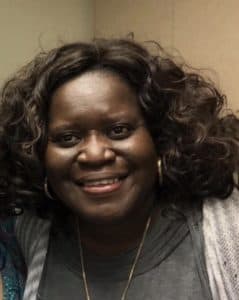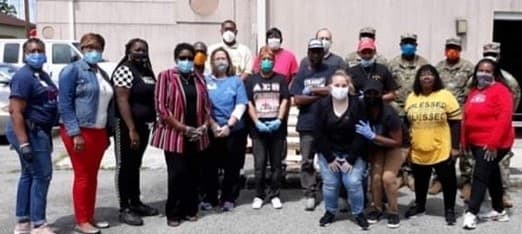Excerpt from article by Prisma Health
Anson Hawkins was a paramedic for nearly 30 years. He loved the job, but after all that time working with so many people who didn’t seem to be taking care of themselves, who came to the ER with the same treatable issues repeatedly, who seemed to be non-compliant and uninterested in change, he was burned out.
“When I came in from the street, I had care fatigue,” he said. “I didn’t understand why people would call 911 with non-life-threatening things. My eyes weren’t opened to what people really go through, just trying to navigate the health system and get proper care, to how many barriers are blocking them.”
After a year on the Community Paramedics team in the Upstate, he said, “I see it through another lens. I now appreciate people where they are.”
Community Paramedics works primarily with patients who are uninsured or underinsured, who tend to use the emergency room for non-emergent troubles because they don’t have the connection to care they need. The paramedics explain basic health care processes, educate patients on their disease or illness, link them to insurance options and primary care providers, and get them on the right path to continued care.
“There are so many social needs that don’t get met,” Anson said. “They may not have transportation or family to help take care of them. Food is more important than medicine when you’re hungry, so they spend what they have on a meal with nothing left for medications. As we knock down barriers and build a path to success, you can see you’ve made a difference – by the care and compassion you’re giving but also by a change in them. They feel empowered to be in control of their own health, ask questions because they’re educated about what’s going on. They know how to have a better outcome; they know how to improve the quality of their lives.”
The difference is that “we are dealing with every piece of the person – mental, emotional, physical, social,” he said. “I met a 90-year-old woman who has to decide each day whether to eat or take her insulin. As a paramedic, my job was to fix the acute problem, fix the emergency. With Community Paramedics, we’re getting to the bottom of what is in the way of you taking your medicine. We’re finding the human cause, the real barriers.”
Dalton Shull celebrated his 30th anniversary with EMS in January. He worked for a county 911 service for over 27 years and then joined Prisma Health’s Critical Care Transport team, and now is the newest member of the Community Paramedics team.
“While I always enjoyed transport, I often found it difficult to not know the long-term outcome of our patients,” he said. “I have a love of caring for the elderly and medically fragile and for trying to improve their quality of life. When I saw the interactions of the Community Paramedics in the Upstate and learned of the successes of the program, I was very excited at the opportunity to serve.”
Community paramedicine is a combination of clinical medical skills and social work, he said, “with a big dose of a passion for longer-term care.” He explained: “You need to be clinically competent to understand the short- and long-term effects of multiple disease processes, but also able to look at how living conditions affect both the physical and mental health of the patients and understand what resources we can call on to meet their needs.”
The Community Paramedics team is in a unique position to see if patients are able and willing to manage their own care. “This opportunity benefits the hospital by reducing preventable readmissions, which allows us to free up the ERs, the inpatient beds and the ambulance service,” he said.
“This is an opportunity to do more than put someone on a stretcher and move them to a hospital,” Dalton said.
“We are able to learn why they aren’t taking their medicine. They may want to be in the hospital because at least they’ll get a meal. If we can provide education and find other resources for them for a more permanent situation, why wouldn’t we?”
Anson agreed, adding, “The relationships and the trust you build with patients and practitioners, when … they see the positive impact on the patient, brings a measurable amount of joy. On the ambulance side, I never got to see the full circle. Now we see A1Cs change, blood pressure coming down, quality of life improving; now they have insurance. THAT is what feeds me. It’s a gratifying feeling, doing more than I ever did to impact people’s health.”
Ken Whitten, director of EMS administration for Prisma Health, said that making the switch to the Community Paramedics team can be beneficial to the wellbeing of the providers themselves, as well as the patients they serve.
“What I really like about this is that – while we focus on patient experience – this is a story about provider experiences,” he said. “This shows the power of these programs and the impact they make on providers. That is why I love it so much!”
 Phyllis Smart is leading the charge to feed the residents of Allendale County, where the rate of food insecurity is the highest in South Carolina. Even before COVID-19, 24.1% of adults and 26.9% of children were food insecure in Allendale County, according to 2017 statistics.
Phyllis Smart is leading the charge to feed the residents of Allendale County, where the rate of food insecurity is the highest in South Carolina. Even before COVID-19, 24.1% of adults and 26.9% of children were food insecure in Allendale County, according to 2017 statistics.
